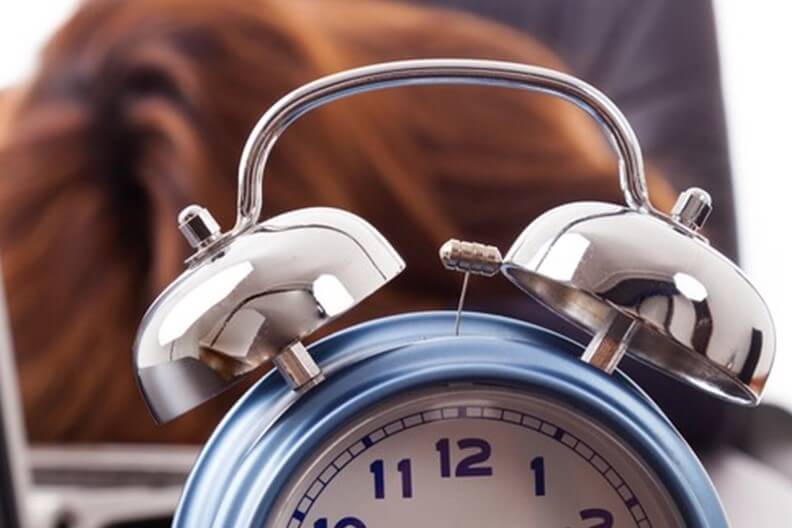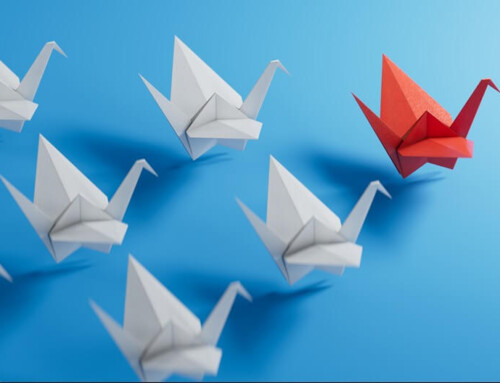The CDC (Centers for Disease Control and Prevention) shows that under 37% of American adults get adequate sleep. Getting enough sleep is something people need for good health. One night of short sleep can affect an individual the next day. Not only are workers more likely to feel sleepy, but they are also more likely to be crabby, moody, and less productive at work.
Why are your workers not getting enough sleep? There are multiple reasons:
- Work-related long-distance travel across multiple time zones,
- Work anxiety, stress, plus,
- Day-to-day concerns about what’s happening in the world,
- Family, relationships, and children.
Sleep is often not considered a productivity or communication factor. However, it should be if leaders and organizations want to enhance worker performance and create work cultures that attract and keep the best talent.
NEGATIVE IMPACT OF POOR SLEEP
- Poor Cognitive Performance
According to one study, not sleeping well can have a similar impact on the brain as alcohol intoxication. (1) Sleep deprivation takes a toll on job performance. One study found that cognitive performance, including concentration, decision-making, memory, innovation/creativity, and increased mistakes, were common with less sleep. (2) - Social Interaction Issues
Poor sleep also has an impact on social interactions. One study found that the lack of sleep impacts recognizing social cues such as anger and happiness. This lack of sleep can lead to misunderstandings, conflict, and other communication issues in the Workplace. (3) - Increases Negative Thinking
According to the Journal of Sleep Research, lack of sleep generates negative thinking, negative emotional biases, and higher emotional reactivity. (4) - Triggers Stress and Anxiety
While work can be stressful on its own, poor, or little sleep can only add to stress and anxiety. One study found that anxiety and stress can lead to further sleep problems and cause people to feel irritable, more emotional, angry, and more easily triggered in stressful situations. (5)
EFFECT OF POOR SLEEP ON CORPORATE CULTURE
Poor sleep doesn’t just have negative results for individuals. One study found that up to $680 billion is lost annually due to workers who receive inadequate or lack quality sleep. (6) In the United States alone, sleep issues result in economic losses of up to $411 billion a year. (7)
Corporate culture is the beliefs and behaviors of the people within the organization and can be reflected in how the public and stakeholders view it. However, it is also influenced by the people within the organization itself. Sleep deprivation can create challenges when the problem is widespread among workers. For example:
- Workload Imbalances Pose Productivity Issues
The ability to do one’s job requires the ability to recall information. When the brain is taxed due to sleep deprivation, this results in more mistakes, added training/re-training, lower customer satisfaction, and decreased productivity. Workers who lack proper sleep may perform less work, while other workers may be working harder to make up the productivity deficit. - Volatile Social Interactions Decrease Collaboration
Communication, social interaction, conflict, decision-making, and problem-solving are fundamental aspects of any job function. Lack of adequate sleep can lead to misunderstandings, increased anxiety, anger, higher responses to emotional triggers, etc. These all diminish the ability to collaborate with others in the Workplace as well as interact with customers. - Mental Fatigue Reduces Innovation
Sleep is essential for creativity which is vital for innovation and new ideas. Whether it’s a resolution to a challenging problem or coming up with new products or features to increase market share, mindshare and revenue, quality sleep is essential for workers to be effective. - Unsafe Working Conditions Increase Risk
A lack of focus can be a liability. In work environments where concentration is critical (such as driving, working with heavy machinery or hazardous materials, etc.), this can lead to safety hazards and increased workplace injuries. This isn’t just a cost that may be reflected in insurance costs, risk management efforts, etc. All workers may be subjected to unsafe working conditions, and in some instances, this can put the public and stakeholders also at risk. - Overtired Workers Decrease Workplace Morale
When workers are sleepy, mentally exhausted, agitated, and need quality sleep, morale suffers. Workers tend to be crabby, less tolerant of each other, less willing to work through conflict, find it challenging to make sound decisions, and are generally less happy. No workplace can survive and thrive when workers are exhausted.
BENEFITS OF QUALITY SLEEP
- Improves Memory and Learning
- Studies have found that sleep is critical to a process called memory consolidation. During deep, quality sleep is when the brain can generate memories which help improve memory long-term (8) and learning (9)
- Assorted studies have proven that good sleep is linked to enhanced memory performance (10), improved problem-solving skills (11), and increased alertness and executive function. (12)
- Better sleep is associated with better academic performance in college studies (13). This association can be applied to any learning, including new skills, new environments, new industries, new clients, etc., within workplace settings.
- Enhances Language Skills
Communication, specifically verbal associative information, is enhanced during sleep. This fact helps language skills which can be beneficial to those learning new languages and seeking to strengthen new vocabulary. (14) - Alters Behavior
Interestingly enough, conditioning can also take place through sleep. Great sleep can be essential, whether breaking a habit or establishing a new (and healthier or more critical one). (15), Pavlov’s dogs’ theory was that they could condition dogs to salivate by using a bell even though they were not presented with food. Initially, Ivan Pavlov and assistants presented food while ringing a bell. Eventually, the dogs began to salivate through conditioning when they either heard the bell or saw people who fed them whether the food was present. Sleep can be used in the same manner. Assorted studies have demonstrated that scent and sound can alter behavior, especially when combined with sleeping rituals. - Increases Resiliency and Recovery
Sleep is designed to help both body and mind recover from what’s occurred during the day. This recovery is why getting a good night’s sleep can feel refreshing because it reduces stress and resiliency. (16) (17) (18) - Improves Focus and Energy
Being able to focus, stay alert and be at peak performance requires sleep. A study proves that energy and alertness are tied to engagement levels. (19) - Results in Longer and Most Positive Lives
Optimism and a positive outlook are more likely after a good night’s rest. One study of over 70,000 people found that people who sleep better are more optimistic and live as much as 15% longer. (20)
HELPING WORKERS GET BETTER SLEEP
- Reduce blue light from computer screens.
Research has demonstrated that reducing blue light can help sleep patterns. One study, limited to light and darkness exposure, showed how melatonin production was improved by using darkening goggles at various times to filter light that may limit sleep behavior later in the evening. (21) - Provide healthy snack options.
Studies show that eating high-calorie and less nutritious snacks can negatively affect health and disrupt sleeping patterns. (22) Providing healthier and fresher snack options will help workers engage in behaviors that help both health and better sleep habits. - Encourage physical activity through health incentives.
Health interventions can be helpful for the promotion of quality sleep as well as supply health benefits such as body weight management, diet/nutrition, stress management, etc. In one study, low-intensity physical activity such as walking on a treadmill for two hours daily resulted in 58% of participants reporting improvements in sleep quality. (23) - Utilize Proper Ventilation and Air Circulation.
Covid shed light on the importance of fresh air circulation and the necessity of ventilation systems. One study shows that these both impact sleep and overall worker performance. (24) - Spend Quality Time in the Outdoors.
Most workers spend a great deal of time inside working under commercial lighting or remote offices with limited options for outdoors during daylight hours. In a recent study, it was found that natural light impacts both mood and energy levels. Workers should be encouraged to take breaks (naps?), when possible, outdoors. If in colder and more temperate climates, the use of naturally lit spaces such as open spaces with greenery, windows, and skylights can be another option. And finally, occasional trips outside of the office space for meetings can be welcome options for workers to enjoy a new setting, improve energy and mood levels and assist with sleep. (25)
Innovative leaders and organizations can create workplace environments designed to enhance worker performance and create a culture that retains their employees and attracts the best new talent. Sleep is one factor that not only impacts productivity but can significantly improve a company’s culture.
Contact Gavel International to be inspired by solutions that connect and engage your people.
———————————-
Sources
- https://pubmed.ncbi.nlm.nih.gov/10984335/
- https://www.ncbi.nlm.nih.gov/pmc/articles/PMC2656292/
- https://pubmed.ncbi.nlm.nih.gov/20337191/
- https://onlinelibrary.wiley.com/doi/full/10.1111/jsr.13022
- https://www.ncbi.nlm.nih.gov/pmc/articles/PMC6122651/
- https://www.ncbi.nlm.nih.gov/pmc/articles/PMC5627640/
- https://www.rand.org/pubs/research_reports/RR1791.html
- https://doi.org/10.3758/s13423-021-01953-6
- https://www.nature.com/articles/ncomms15405
- https://pubmed.ncbi.nlm.nih.gov/19379769/
- https://pubmed.ncbi.nlm.nih.gov/12421655/
- https://doi.org/10.1007/s10072-021-05437-2
- https://www.ajmc.com/view/association-found-between-better-sleep-academic-performance-among-college-students
- https://www.cell.com/current-biology/fulltext/S0960-9822(18)31672-5
- https://www.healthline.com/health/classical-conditioning
- https://www.sciencedirect.com/science/article/abs/pii/S1440244021001328?dgcid=rss_sd_all
- https://www.researchgate.net/publication/322934131_Long-Term_Effectiveness_of_Stress_Management_at_Work_Effects_of_the_Changes_in_Perceived_Stress_Reactivity_on_Mental_Health_and_Sleep_Problems_Seven_Years_Later
- https://health.mil/News/Articles/2021/10/14/Brain-Resilience
- https://doi.org/10.1016/j.jad.2021.08.056
- https://www.pnas.org/content/116/37/18357
- https://journals.sagepub.com/doi/abs/10.1177/0748730402238238
- https://www.wellandgood.com/sleep-deprivation-unhealthy-snacking/
- https://journals.humankinetics.com/view/journals/jpah/13/1/article-p111.xml
- https://www.tandfonline.com/doi/abs/10.1080/15459624.2015.1076160
- https://doi.org/10.1016/j.jad.2021.08.056
This article was last updated on April 24, 2025
- Take Action on Organizational Values to Improve Company Culture - September 8, 2025
- Discover Hidden Gems in the Art, Culture and Outdoor Attractions in Dallas, Texas - August 25, 2025
- Create High-Quality Content Your Audience Truly Values - August 11, 2025






